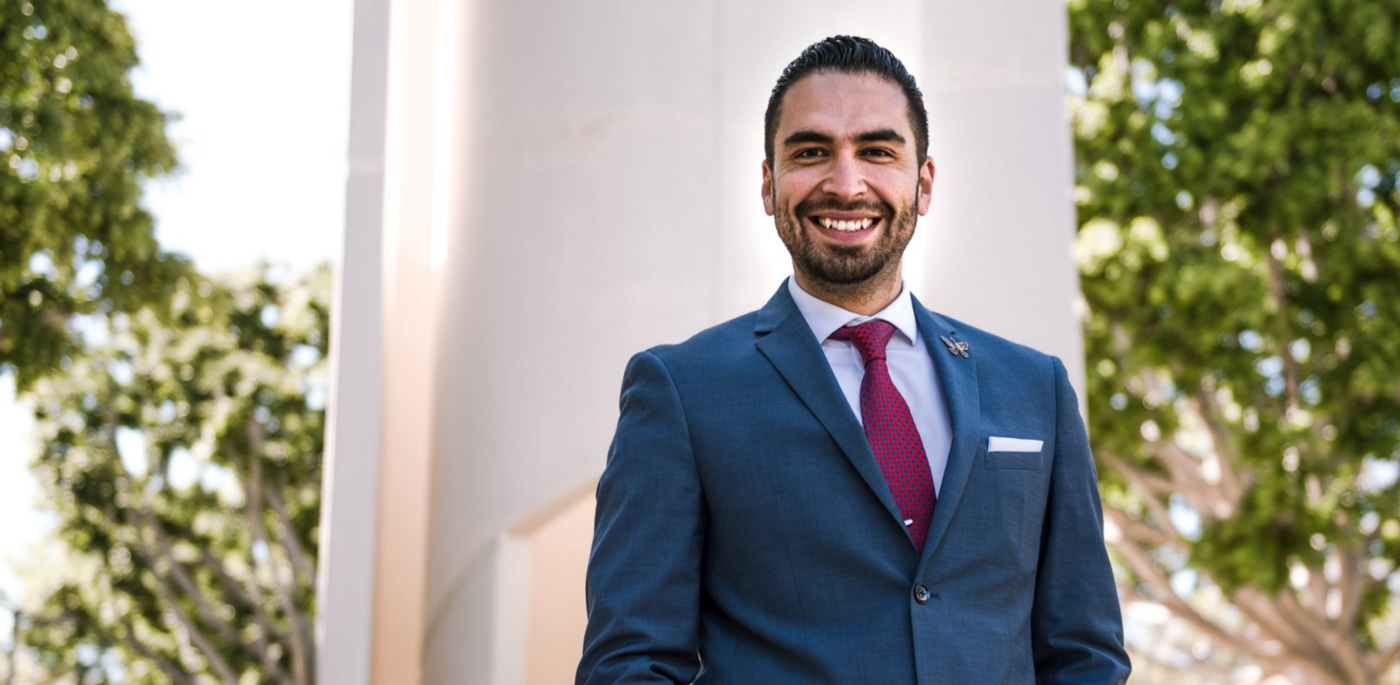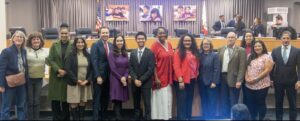
By Rubi Martinez | April 4, 2017
All of us have a story to tell — through our narratives we learn from the experiences and the impact that these experiences have in their lives. We also learn about the past, the present, and sometimes may even foretell the future. Storytelling has an exponential power to influence social and cultural norms, shape public opinion, and impact policies.
Storytelling is a crucial component as a movement building strategy to achieve social and economic justice. Ernesto Rocha, is a community organizer, storyteller, transformational coach, and advocate for social, racial, and economic justice; he knows firsthand about the capacity and effectiveness of narrative. Rocha who identifies as an undocumented immigrant and a queer person of color was empowered through sharing his personal story, a story of struggle and resilience.
Rocha was born in Central Mexico, in the state of Jalisco. He was raised in Long Beach, California by his single mother. From an early age he straddled the worlds of Mexican traditions and American influence. Rocha grew up listening to rancheras, Selena, Juan Gabriel, and classical symphonic music. In school he played the cello, the drums and participated in plays and musicals. Yet, Rocha felt a sense of alienation.
“As much as I tried to fit in, I knew I could not be part of the dominant narrative in the American story.”
In college Rocha was propelled down a path of self discovery and realization, “It was here that I had to unlearn, relearn and reteach myself a different critical perspective on the historical contributions of immigrant Mexican, Latinx and Chicanx peoples.”
During his undergraduate education at UCLA, Rocha worked on multiple immigrant right campaigns, he was a member of IDEAS, a student organization for undocumented students. He was also involved in the creation of Underground Undergrads, a student lead publication that highlighted the struggles of undocumented students face when pursuing higher education. Underground Undergrads just celebrated its 10th year anniversary celebration. This publication for and by undocumented students lead to the formation of the Dream Resource Center’s Undocumented Stories, a multimedia exhibit that serves as a platform to uplift the lived experiences of the undocumented immigrant community, and seeks to empower immigrant communities to reconstruct narratives, shape public opinion, and influence policy affecting undocumented immigrant community.
The following is a Q&A interview with Ernesto Rocha.
How has IDEAS and Underground Undergrads influenced you?
IDEAS became the chosen family that I needed to survive my years at UCLA. It was through this group that I met some of the most powerful, fierce and influential organizers that I know to date. We didn’t know it at the time, but we were part of building a powerful movement that would call our nation to confront their problematic ideology with immigration. IDEAS as well as Underground Undergrads would break the ground for the immigrant rights movement. We knew we needed to get in front of our own stories and use them as a source pride and power; this book symbolized that for us. It is incredible to see that the stories featured in the book ring just as true as they did 10 years ago.
How did you get involved in the movement?
I got involved “en el movimiento” out of necessity. As I was thrusted to fend for myself as a young undocumented student; I needed to connect with folks that understood my experience. Beginning in college, I joined groups that advocated for the rights of undocumented and students of color. My organizing was part of my own survival; I knew that we had to do something to make our existence visible to institutions that had no clear path to provide us support or guidance. This opened a new world of advocacy for me. From here I went to become a union organizer and a community organizer working on citywide policy campaigns around the minimum wage and wage theft.
“I knew that we had to do something to make our existence visible to institutions that had no clear path to provide us support or guidance.”
Why is storytelling instrumental for the movement?
Storytelling is an art form that has been used by our ancestors in our diverse cultural traditions to pass down the legacies and stories of our people. I use storytelling precisely as a tool for my liberation. For me sharing my story has meant giving the space necessary for my 8-year-old self to speak. For years, his experience was neglected and buried by the fear of retaliation, hate and deportation. For as much as I tried to hide it, the need to be heard, to be seen became overpowering. The longer I remained silent the more others spoke on my behalf. This was painful because these stories consume you and if allowed, become you. I dropped out of school, developed bad habits and at times self sabotaged my personal goals to mask the inner rejection I felt. Storytelling is a cleansing of sorts. It has given me the ability to speak my truths from my perspective. It validated my pain and journey to this moment.There is power in your narrative and lessons to be learned from your challenges, downfalls and victories; for me telling these stories honors my lived experiences. The movement needs more honesty and storytelling is just one way to get closer to that.
Part of my work in organizing has been to highlight the stories of workers and community members as they pertain to issues. I have seen how these can move people to act, pass policies and become civically engaged in our political processes. Similarly, stories have the power to heal. With this in mind, I co-created Cocoon, a series of storytelling nights in Long Beach that provide a platform for people of color to share their stories as a way to heal, transform and liberate themselves from pain. A space like Cocoon became particularly important after this presidential election. Our communities needed a space to be heard and seen.
Learning from the past, and knowing how the current political climate is now, what would you advise the younger generation?
Become intimately engaged with your personal narrative. Come to know and love who you are becoming. Our stories as immigrants do not begin the moment we became “undocumented” and end the moment we become “documented”. We are more resilient and powerful than that. Our narratives have life, humor, tradition, heartbreak, love and a bit of magic. It is my greatest hope that the younger generations will use the many lessons they have learned over the years. I hope that they build upon the legacy of struggle and beauty that has characterized the immigrant rights movement in this country. I was undocumented before and after this presidential election; not much has changed since Trump. If anything, what we know is that we have to be more bold and proud to be who we are. So to that I say, vamonos, let’s get to work and be more brilliant, beautiful and fearless every single day.
“Our stories as immigrants do not begin the moment we became undocumented and end the moment we become documented.”
Where are you currently?
I am currently a community organizer with the Los Angeles Alliance for a New Economy (LAANE), working on the ports project. This project works with port truck drivers and other workers within the goods movement industries to lead campaigns around issues of environmental degradation, misclassification, wage theft, and the health and safety of workers and community stakeholders. After 11 years of struggle, I finally graduated from UCLA in 2016 with a double degree in Political Science and Chicana/o Studies. I am currently a fellow of the UCLA School of Law, Law Fellows Program. I am also working on receiving my coaching certification to become a professional transformation coach to young professionals of color who struggle to showcase all their talents and manifest at their highest potential.

